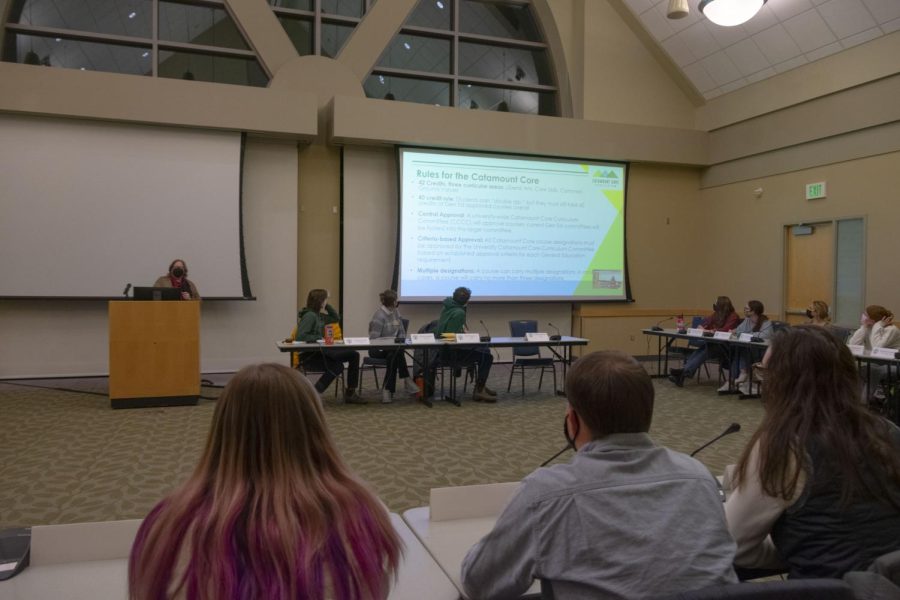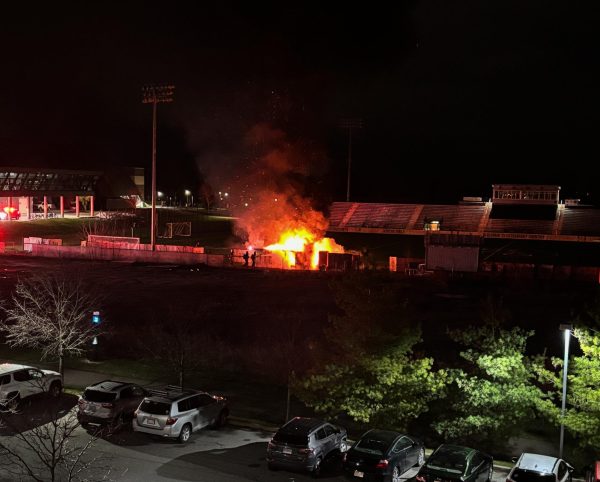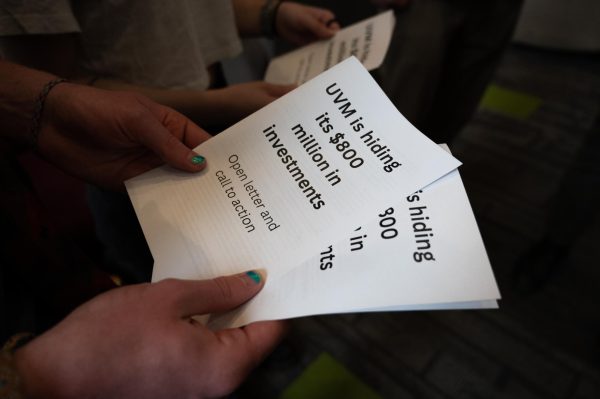UVM works towards updated curriculum
Members of SGA take notes during a public forum in the Livak Ballroom Feb. 22.
UVM’s committee on general education requirements plans to update degree requirements for fall 2023 in response to accreditation demands, said Jennifer Dickinson, vice provost for academic affairs and student success.
In 2019 the accreditor’s report required 42 credits under general education rather than the current 15, Dickinson said. The Catamount Core Curriculum Committee’s job is to fulfill this requirement so the general education standards meet the accreditor’s demands.
The New England Commission is UVM’s accreditor, which means they periodically determine whether they meet or exceed a set criteria for the assessment of institutional quality through a peer group review process, according to UVM’s website.
The accreditor re-assesses the curriculum every 10 years, Dickinson said.
The committee officially began its work in the fall of 2021, said Priyantha Wijesinghe, senior lecturer and coordinator of curricular enrichment in the College of Engineering and Mathematical Sciences.
Under the new accreditation standards, social sciences, humanities, fine arts and natural sciences will become a requirement for every student at the University, according to a Nov. 7, 2019 Cynic article. This will allow UVM to meet the standards for accreditation.
The requirement is 21 liberal arts credits, nine core skills credits and 12 credits of common ground values, said Joan Rosebush, senior lecturer and director of Student Success.
The new additions to the Catamount Core curriculum will increase opportunities to take classes outside of a student’s major’s department, junior Ginny DeFrances said.
Classes are being slated for approval for the new curriculum so there are enough up and running by next academic year in order to allow new students to meet their requirements for the Catamount Core, Dickinson said.
By the Committee’s Feb. 1 meeting, 76 professors had applied for their classes to be a part of the requirements, Dickinson said.
When professors initially apply for their classes to be a part of the Catamount Core Curriculum, the subcommittees for each college have to approve them and then the leadership of the entire Committee approves the classes, Rosebush said.
“We’ll be working really hard to get enough courses approved, so that the incoming class in the fall of 2023 can complete their curriculum and have a lot of course choices,” Dickinson said.
The Committee aims to consolidate the subcommittees previously in place, such as the D1, D2 and sustainability committees, into one larger committee, junior Eli Smith said.
The CCCC still has committees that answer to the one overarching committee. They can work together in order to encourage more collaboration and fix the larger issues across colleges, DeFrances said.
“We really believe that this will be wonderful for students,” Rosebush said. “All the students who start with this Catamount Core are going to leave UVM ready for the world.”
Categorizing the courses under the new requirements and fitting them into everyone’s degree audits has been the main reason why it has taken as long as it has for the requirements to be fulfilled, Rosebush said.
Discussion on the curriculum changes started during fall 2019 and by spring 2020 the subcommittees for the colleges started working within their programs in order to become a part of the CCCC and update the general education requirements, Wijesinghe said.
Both the committees for the colleges and the CCCC will review the syllabi in detail before approval, Wijesinghe said.














